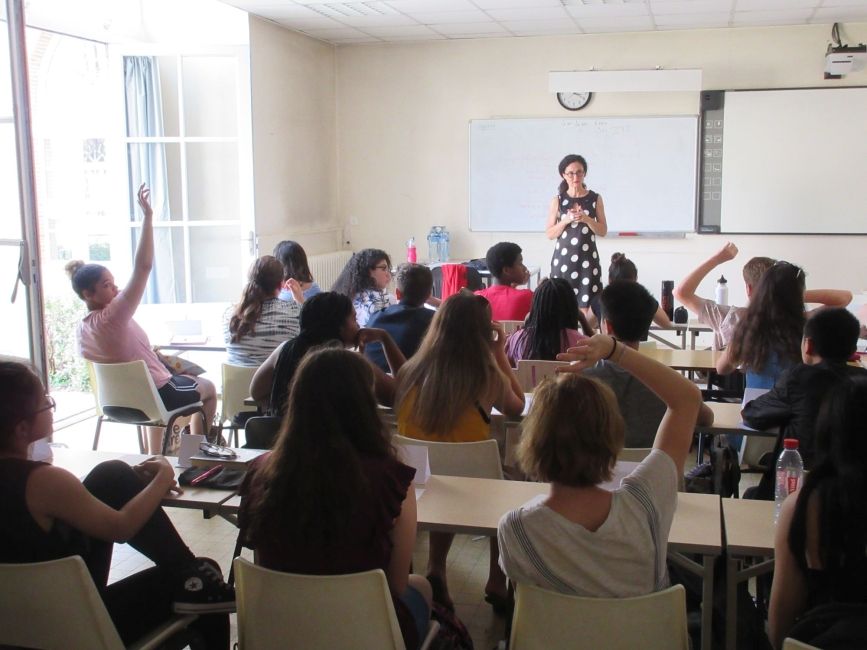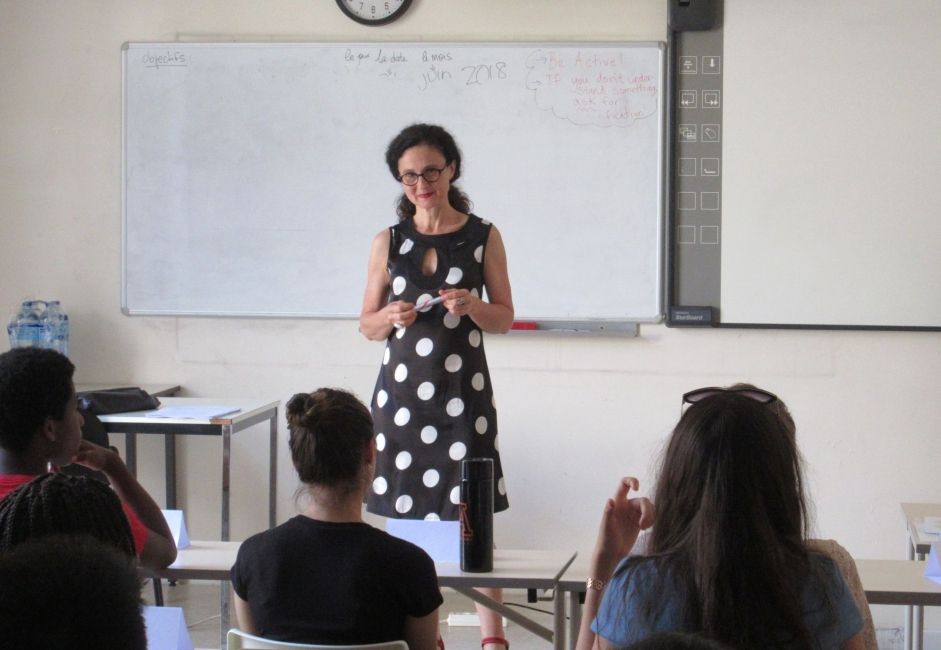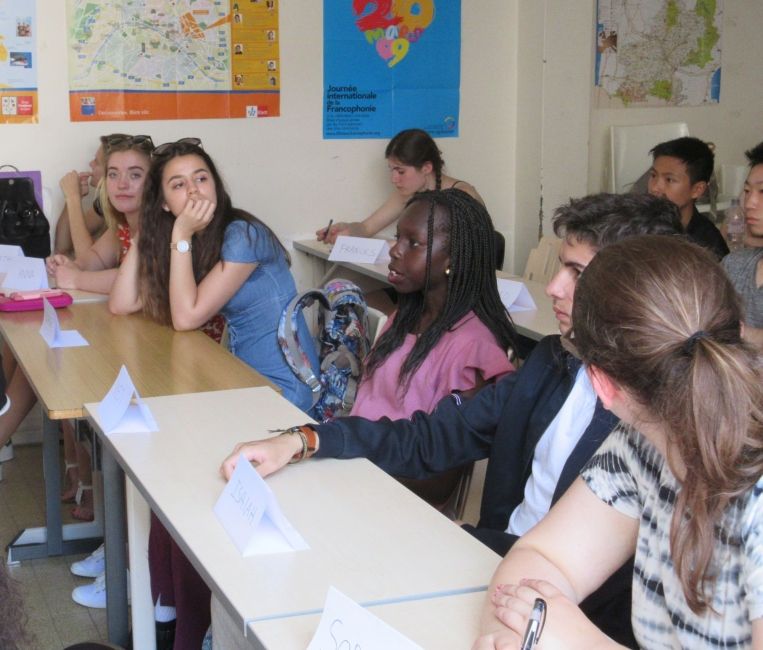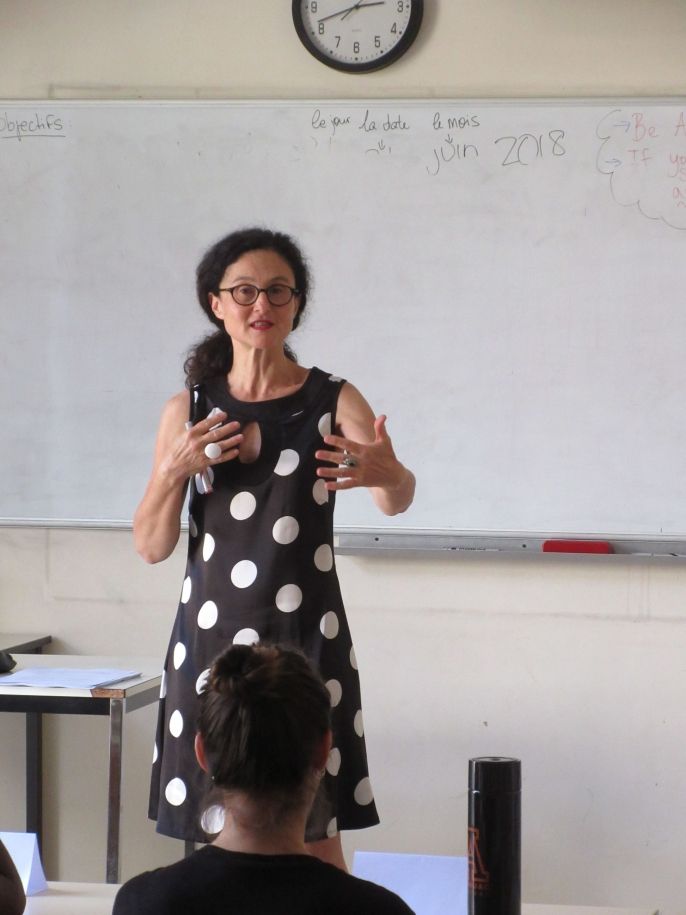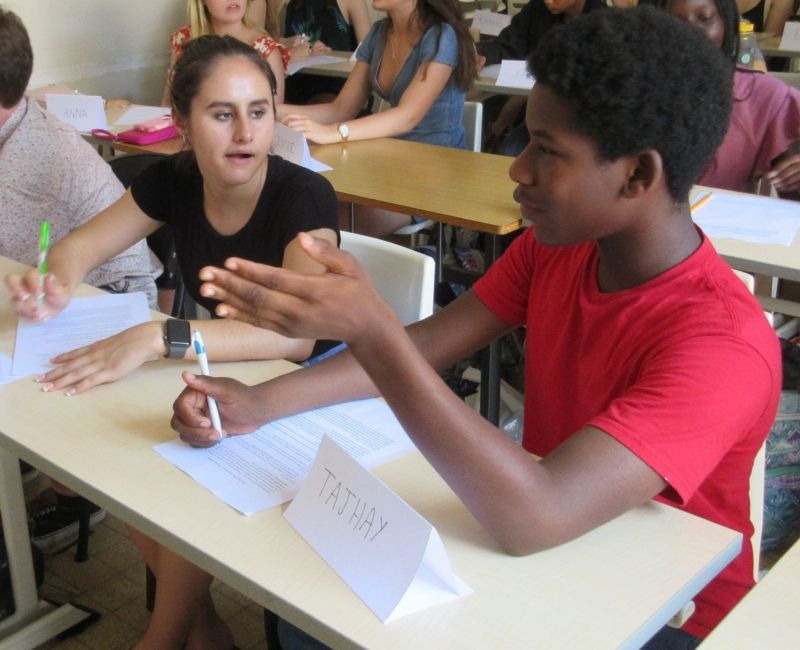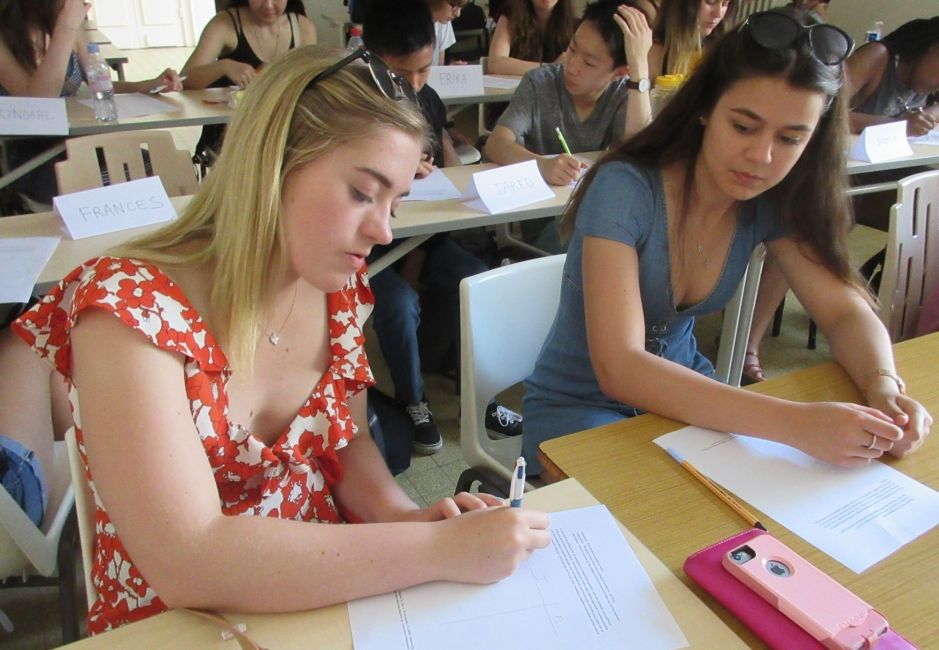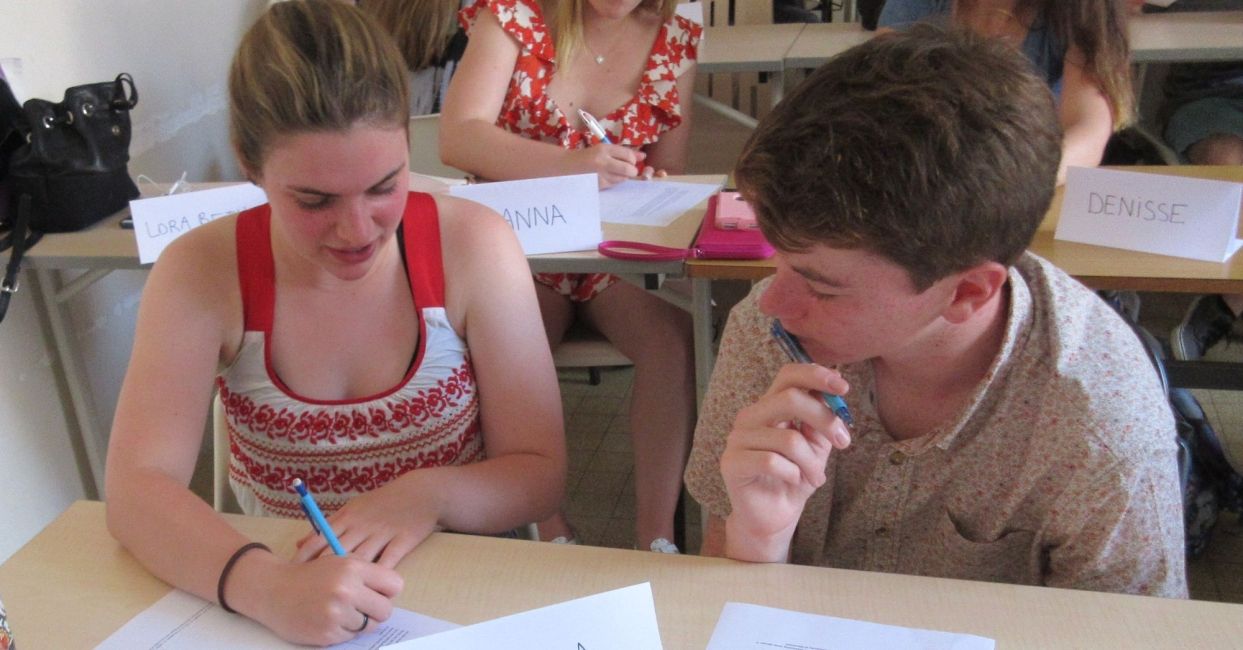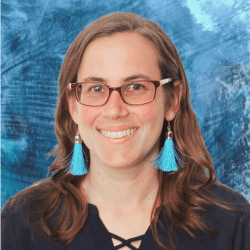Cultural Dialogue Leads to Empathy in Toulouse
| “A multicultural society does not reject the culture of the other but is prepared to listen, to see, to dialogue and, in the final analysis, to possibly accept the other's culture without compromising its own.” ~Reuven Rivlin |
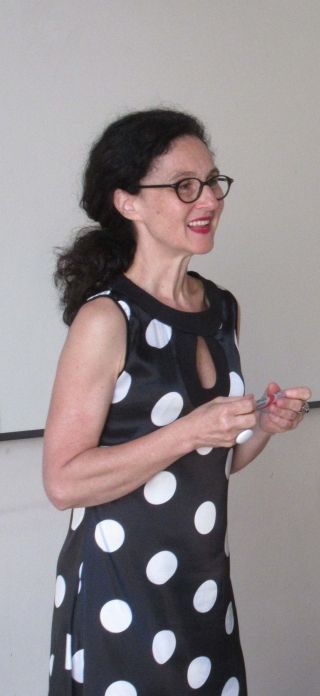
One of the highlights of the cultural reflection and learning that takes place in the Toulouse program is our “Intercultural Dialogues”, which are led by Center Director Isabelle Jaffe. Meet Isabelle.
A native French speaker with French and American nationality, Isabelle is an expert in philosophy, a great thinker and a writer. Her years of experience as a facilitator of cultural discussions are a huge asset for young high school students who are in the exact right moment in their lives to begin to think deeply about a variety of cultural perspectives during their study abroad summer.
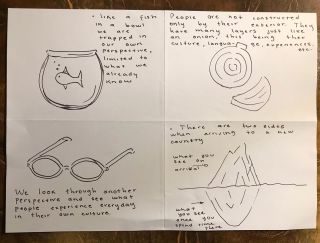
During these “Intercultural Dialogues”, Isabelle facilitates cultural reflection by providing a space in which students can discuss new experiences and cultural differences and their reactions to them.
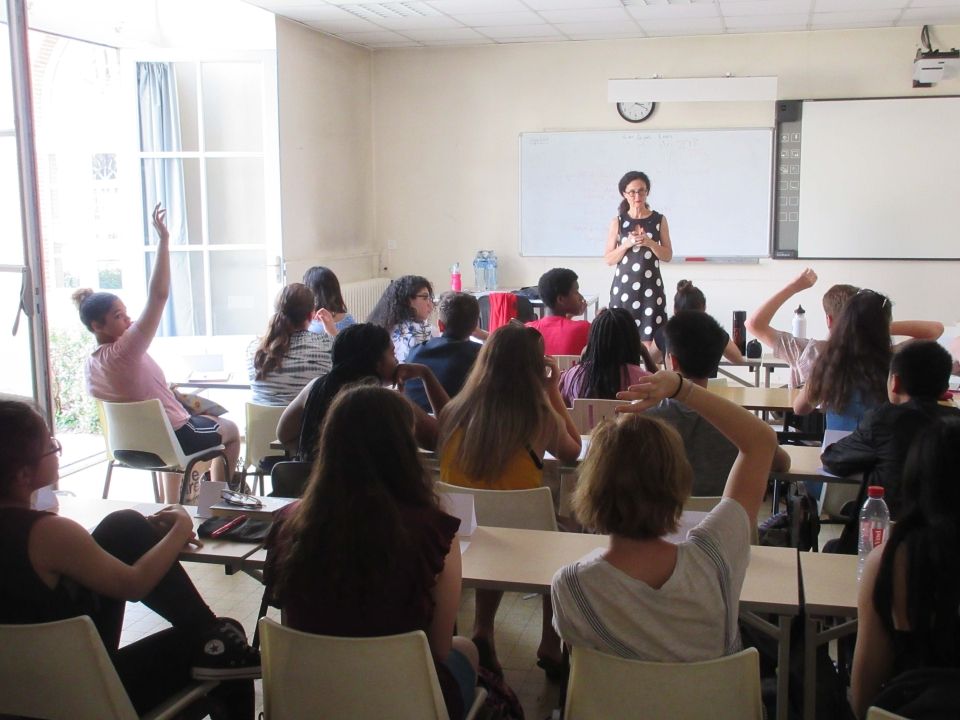
Moreover, Isabelle provides tools to help students make sense of the new culture and enhance their understanding of the perspectives that underlie the differences they notice. One such cultural analysis tool is the D.I.E. method (which stands for Describe, Interpret, and Evaluate).
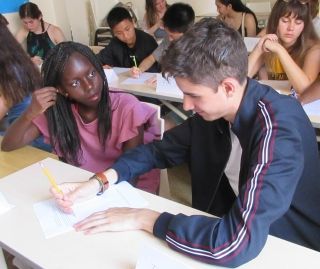
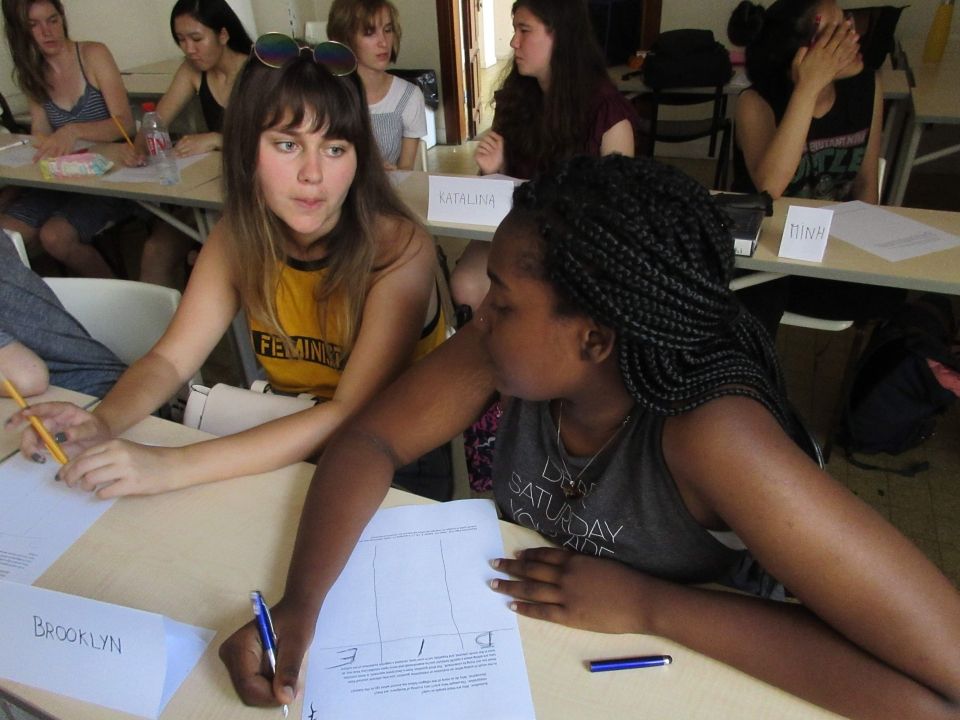
This method encourages students to develop a more nuanced understanding of both the target culture (in this case France) and their own. Rather than judging first, they are learning to observe first, then interpret, and finally, to evaluate. Furthermore, they are able to process their discomfort or any negative emotions that might arise in a much more productive way. In the video below, Lora Beth discusses her understanding of the D.I.E. method after the first intercultural dialogue.
During the first intercultural dialogue, students discussed different norms around dinner time, many of them citing that eating dinner together and sharing about their day was an expectation in their French host family. One student discussed how talking at the dinner table is not the norm in her own family back in the U.S. so she needs to constantly remind herself to speak to her host family when breaking bread.
Several students spoke about the level of noise tolerated in public spaces, noting that in Toulouse, it seems that being loud in public spaces, especially in the metro, is not viewed upon favorably, whereas in their home city, more noise is tolerated. Students also hypothesized that some of the 'disapproving looks' they might have received maybe had to do with their use of English in public spaces. From there, the conversation delved into an analysis of integration vs. assimilation of immigrants in France and in the U.S. Isabelle explained that in the U.S., people may often highlight their differences in order to access certain rights and power, whereas in France, there was a stronger push for equality, as the way to gain power in the society might be for everyone to become equal and for everyone to successfully learn and use French in their every-day dealings. This might explain why hearing English spoken in public places in Toulouse might be somewhat shocking to locals. Students also alluded to recent U.S. current events where people are being questioned on the language they use in public spaces. When these dialogues occur, students start to ask questions such as "Is the U.S. a melting pot or a salad bowl? What about France?" We haven't yet come to a full understanding of these questions, but there are more intercultural dialogues to come!
Ultimately, this kind of cultural analysis not only expands the horizons of students’ minds but also makes them more empathetic people. If everyone in the world looked at “the other” and tried to understand “them” from the inside, by decrypting and acknowledging differing cultural parameters, there is no doubt in my mind that we would live in paradise. The world would be led by peace and concern for the other.
And the world will be a much better place when the ripples of cultural understanding that our students experience via these intercultural dialogues reverberate back into their communities at the end of the program.
In short, thank you, Isabelle, for contributing to shaping our students into more empathetic future leaders!
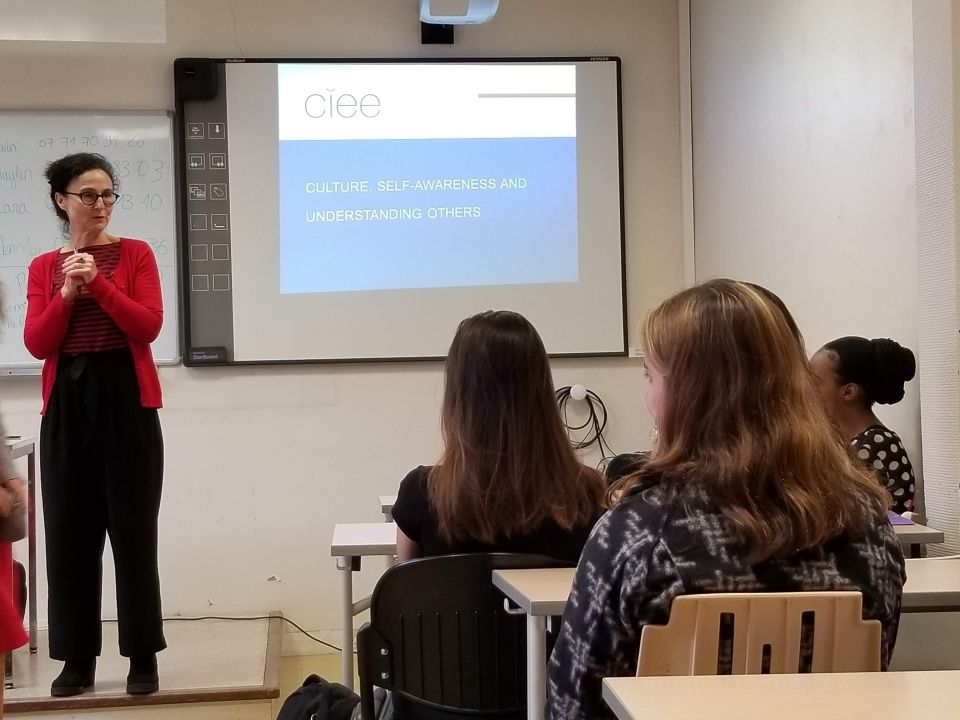
Related Posts
Pot de départ: À bientôt!
After four eventful weeks, our Global Navigators have "mixed feelings" about parting ways. It can be difficult to switch back to everyday life after such a transformational experience. As highlighted... keep reading
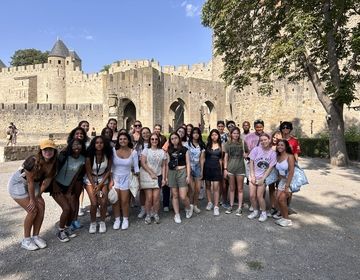
A visit to the past
This week, students spent time visiting the medieval fortified city of Carcassonne.
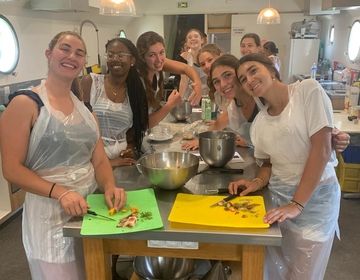
Atelier Pâtisserie!
Students braved high temperatures this week and got to brush up on their culinary skills during a pastry workshop! They worked in small groups to create a variety of French... keep reading
